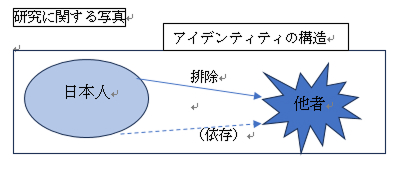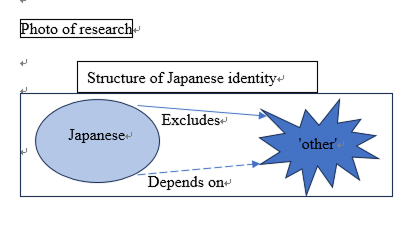Philosophy and PsychologyGender & Ethnicity
Dolinšek, Sašo

立命館大学 非常勤講師
Main achievements
- Academic article: Dolinšek, S. ‘Kanno Sugako no “ikikata” to museifushugi no hitsuzensei’ 管野須賀子の〝生き方〟 と無政府主義の必然, in Nenpō ningen kagaku年報人間科学, 41(2), pp. 111-127. (peer-reviewed)
- Academic article: Dolinšek, S. ‘Desire Versus Ego: On How Kaneko Fumiko Transcended Stirnean Egoism’, in Asian Studies 10(3), pp. 241-272. (peer-reviewed)
- Academic article: Dolinšek, S. ‘The All-Encompassing Inclusivity of Exclusion: Kaneko Fumiko’s Universalist Tendencies’, in Japan Review 38, pp. 173-196. (peer-reviewed)
Field of research
History of anarchist movement in Japan, psychoanalysis, contemporary continental philosophy.
The kind of researcher I want to become
Reconciliation studies mainly deal with units such as nationalities, nation-states and ethnic groups. For example, common objects of research are conflicts between people of different nationalities or ethnicities, such as Japanese and Koreans, Germans and Jews, Tutsis and Hutus, etc. In contrast, I would like to transcend this entrenched framework and reconsider the possibility of reconciliation through a different paradigm.
My research theme
My doctoral thesis focuses on the Japanese anarchist Fumiko Kaneko, who was active in the Taisho period. Concerning her, I would like to make two points. She was born an ‘unregistered’ (i.e. not included in the family register), meaning she was not recognised as a Japanese citizen. While this caused her a lot of suffering, it also gave her the ability to form solidarity with other excluded people, particularly Koreans. With these two aspects as a starting point, I would like to divide my study of reconciliation studies into two stages.
The first stage is to analyse the structure of the Japanese identity through the concept of psychoanalysis. Specifically, I will explore how the identity of being Japanese can only be coherent if a certain person is excluded. In other words, the identity requires the exclusion of certain people. Therefore, the Japanese, in order to be Japanese, must always differentiate themselves from and exclude some ‘other’, such as Kaneko Fumiko or the Koreans. I trace the genealogy of theories of Japanese identity and unfold the structure of dependence on the Other, which takes the form of being compelled to exclude the Other.
The second stage then considers the possibility of transcending ethnic or national identities, such as Japanese, which always have to exclude some ‘other’. For example, the fact that Kaneko Fumiko was not only free from Japanese identity but was also able to identify with Koreans regardless of ethnicity or national identity, suggests this possibility. The key to this, I believe, lies in Kaneko’s and the Koreans’ exclusion from society. Because they were not assigned their own place within society, they did not invest their hopes and dreams into that society. As a result, identities such as ethnicity or nationality and the collective memory connected to them did not become obstacles to identifying with the ‘other’. However, I want to examine the question of what comes when one has transcended identities such as ethnicity and nationality. Is there only a more general and broader identity, such as humanity, or does there exist the possibility of transcending identity in general? I am biased towards the latter and look for that beyond of identity in class struggle. I believe that to participate as a worker in class struggle does not imply an embrace of the identity as a worker, but rather means participation in the struggle because of one’s lack of a place in that society. Moreover, I argue that this lack of place and identity is imbued with true universal value. Future research will analyse the structure of this lack of identity.
Tentative title
Class struggle as the possibility of transcending identity
Research Image



